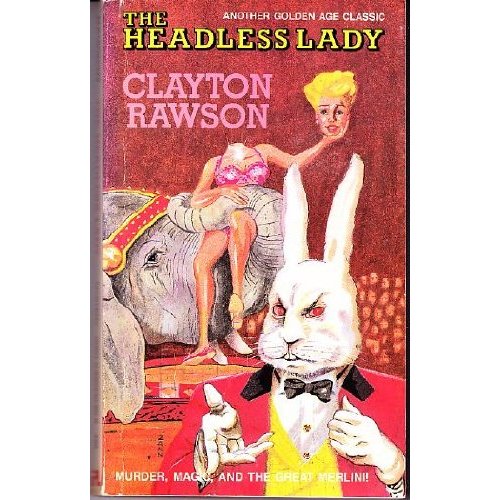“I was tossing broads on the backstretch at Saratoga. There was a fly gee in the tip with a big mittful of folding scratch. He thought he could pick me up, so I let him see me take out the crimp. Then I crossed him by putting it back in the same broad! He was all set to spring when Paper-Collar Ed, who was weeding the sticks, rumbled the gaff trying to duke the cush back to me. Another savage blowed it, sneaked out and beefed to the fuzz. The mark knew the big fellow, and the coppers had to turn on the heat. Ed and I were sneezed before we could slough the joint, and then the fix curdled. The robe was all set to hand us a ninety-day jolt when...”
OK, here’s a clue. It’s about a three-card monte game. This is a rigged gambling game, also called ‘Find The Lady’, in which someone mixes and tosses three cards onto a table or newspaper or some other flat surface and gullible gamblers have to bet on the final position of a certain card (often, but not necessarily, a queen or ‘broad’).
 |
| Three three-card monte |
OK, now here’s a line by line translation:
I was tossing broads on the backstretch at Saratoga.
I was running a three-card-monte game at the race in Saratogo.
There was a fly gee in the tip with a big mittful of folding scratch.
There was a wise guy in the crowd who knew how the swindle was worked. He had a fistful of paper money.
He thought he could pick me up, so I let him see me take out the crimp.
He thought he could beat me at my own game, so I let him see me straighten out the bent corner.
Then I crossed him by putting in back in the same broad!
Then I double-crossed him by replacing the bend in the same card!
He was all set to spring when Paper-Collar Ed, who was weeding the sticks, rumbled the gaff trying to duke the cush back to me.
He was all ready to bet when Paper-Collar Ed, who was retrieving the money that other members of the mob had been allowed to win as a come-on, wasn’t successful in concealing the fact that he was passing money back to me.
Another savage blowed it, sneaked out and beefed to the fuzz.
Another sucker saw it, sneaked out and called the cops.
The mark knew the big fellow, and the coppers had to turn on the heat.
The sucker had a pull and the police were forced to take action.
Ed and I were sneezed before we could slough the joint, and then the fix curdled. The robe was all set to hand us a ninety-day jolt when...
Ed and I were arrested before I could stop the game and clear out, and then the protection money that had been paid out to the authorities didn’t do its work. The magistrate was about to give us a ninety-day sentence when...
This passage is taken from a novel called The Headless Lady, which was written by a professional magician named Clayton Rawson in 1940. Rawson wrote four mystery novels featuring a conjurer called The Great Merlini. This novel takes place in a circus and it is stuffed full of wonderful slang, jargon and technical terms relating to magic, the circus, gambling and con men. Rawson helpfully explains most of the words in footnotes, which is how I arrived at the translation above. I must say though, that even some of his translations baffle me a bit (what does "The sucker had a pull" mean?).
Anyway, if you have a chance to get this novel, do so. It’s worth it for the lingo alone. As an added bonus, it is also a cracking good story!














